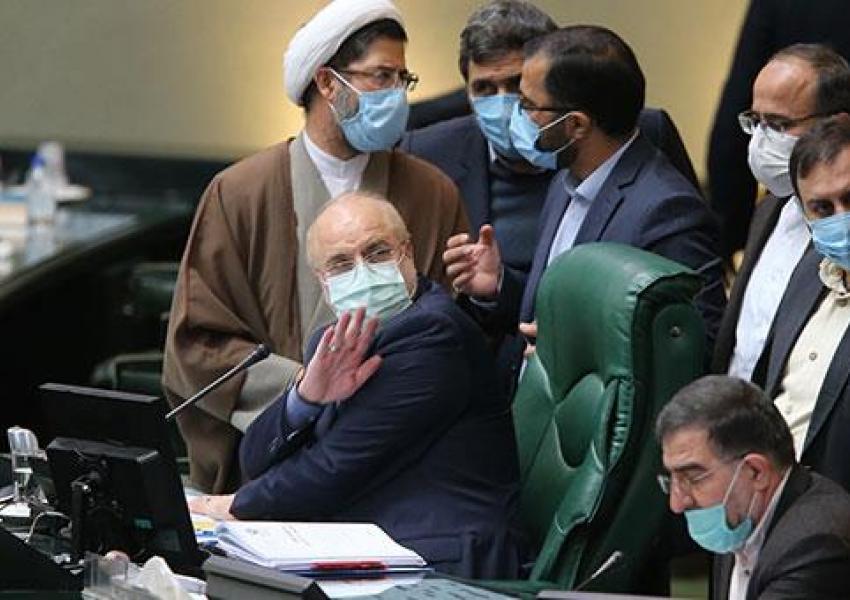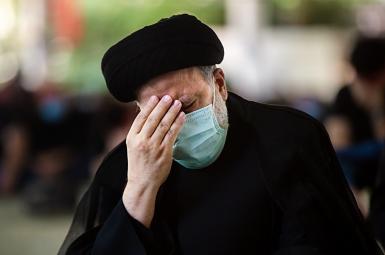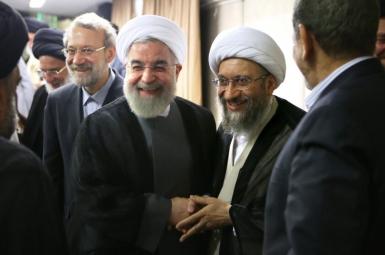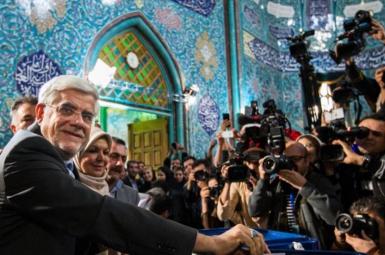
Is Zarifgate Just The Tip Of A Melting Iceberg In Iran?
The audio file of an interview with Mohammad Javad Zarif, and the foreign minister’s revelations, has shaken the governing system in Iran, almost like the Watergate scandal in the United States a half century ago. A review of recent events, however, suggests that this is the tip of an iceberg.
Supreme Leader Ali Khamenei − who Iranian authorities and politicians refer to as ‘fasl al-khitab,’ the one who has the final say by refuting the wrong − has always exhorted officials and politicians to resolve differences and not let Iran’s enemies exploit discord. Less than two weeks ago, the latest issue of Khat-te Hezbollah, the weekly publication of Khamenei's office, highlighted under the headline "The Final Word" parts of the leader’s speeches on the nuclear issue, including his exhortation on February 22 not to allow "two contradictory voices."
But it seems that infighting, as the June presidential election draws near, has reached the point where few are heeding Khamenei’s advice and are instead in furious competition to disgrace and destroy each other. Whoever was responsible, the leaking of the Zarif recording shows Iran’s governing system to be in chaos. Khamenei’s silence on the issue adds to the uncertainty and has fed rumors that the 81-year-old leader is leaving day-to-day management with aides.
Speculation over the leaking of the Zarif tape has been rife. Many hardliners have blamed someone in Rouhani government, with some suspecting Zarif's moderate or reformist rivals of seeking to undermine him.
While the Washington Post’s Jason Rezaian has speculated that Zarif, playing a “dangerous game,” leaked the tape to improve his image, others take the opposite view that the leak was designed to undermine Zarif, either as the foreign minister committed to reviving Iran’s 2015 nuclear deal with world power or as a possible candidate in June’s presidential election. By the latter logic, hardliners and critics of the deal had much to gain from the revelation, even at the cost of airing a few secrets.
In another instance of infighting, almost drowned out by the commotion over the Zarif audio file, the Paydari (Endurance) Front (Jebhe-ye Paydari) on April 25 launched an attack on Parliament Speaker Mohammad Bagher Ghalibaf (Qalibaf) that might destroy his hopes of the presidency. More than 100 lawmakers associated with the ultraconservative group signed a letter accusing Ghalibaf of altering figures in the budget bill several days after the bill's final approval by parliament in late March.
The parliamentarians claimed the speaker – in an “unprecedented development” that “sets a record in terms of evading laws” − had granted budgetary concessions to individuals and organizations aiming to seek their favors once elected president. The Paydari Front has been accused of masterminding state television’s recent programs deemed to be criticizing Zarif and the Vienna talks aimed at reviving Iran’s 2015 nuclear agreement with world powers.
Not be outdone, websites supporting former president Mahmoud Ahmadinejad have for a while been promising "a news bombshell" before June’s election. While Ahmadinejad has a track record of defying Khamenei, shown clearly when he was president, the former president and his supporters have made various allegations against most factions and figures. Last week Ahmadinejad claimed that the country's leaders had taken money abroad and bought islands so they can escape “if people’s anger boils over.”
Aside from domestic ramifications, the political chaos currently observed in Tehran is undoubtedly not a positive development for the nuclear talks in progress in Vienna and the revival of the JCPOA which hardliners and the Revolutionary Guards are so fiercely battling in open and behind the scenes.









